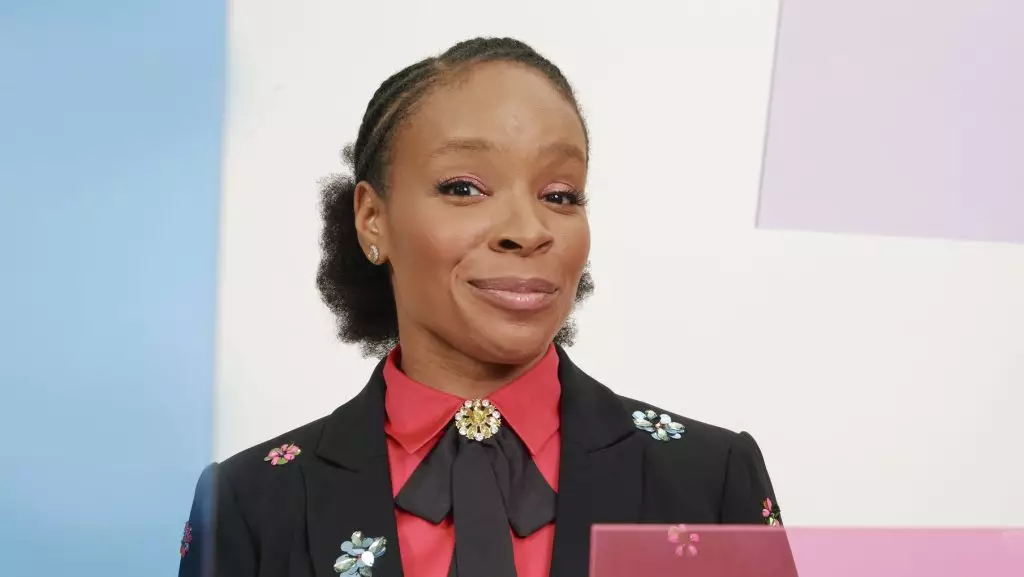The White House Correspondents’ Association (WHCA) made headlines recently by announcing that this year’s annual dinner will not feature a comedic performance, a significant departure from tradition. President Eugene Daniels communicated this decision to the WHCA’s members, emphasizing the need to refocus the event on honoring journalistic achievement amidst a challenging political climate. The transition signals a profound acknowledgment of the intricacies of the current media-political landscape, where comedic satire is often entangled with divisive political narratives. The intention is to prioritize recognition for the vital contributions of journalists over a night of entertainment, underlining the critical role that a free press plays in the democracy.
This shift is particularly fascinating given the historical context of the event. Traditionally, the WHCA dinner has served as a rare platform where politicians and media figures can mingle, often showcasing a humor-infused commentary on the current political atmosphere. With the decision to eliminate comedy this year, the WHCA appears to be steering the conversation away from humor that can inadvertently exacerbate partisan divides.
The Controversy Surrounding Amber Ruffin
Initially, Amber Ruffin, a well-known comedian and late-night television host, had been selected as this year’s featured entertainer. However, her past work—which includes commentary that is critical of former President Donald Trump—triggered backlash from the White House and his supporters. Critics argued that her performance would not align with the goal of celebrating a united press but rather serve as a platform for further polarization. It seems the WHCA has been acting not only in response to internal considerations about the tone of the event but also in reaction to external pressures from the political sphere.
Ruffin’s humor can be piercing, pushing boundaries that some politically inclined audiences may find undesirable. Her previous comments about the Trump administration drew ire, which may have prompted the WHCA to reconsider her role in this year’s function. The backlash highlights a tension that comedians often navigate, particularly those who take a stance against established political figures. The decision to exclude humor from this year’s dinner might be interpreted as an attempt to quell such tensions and refocus the conversation back to journalistic integrity.
The Evolution of the Dinner
The WHCA dinner has long been a complicated affair. Over the years, different presidents have approached the event in varied manners; Trump notably skipped the galas during his presidency, feeling that the comedic punches aimed at his administration crossed a line. This avoidance might have allowed volatility to seep into the events, turning what was intended as a light-hearted occasion into a battleground of jabs and sharp wit. With the humor taken away, the WHCA seems to be leaning towards creating an atmosphere where serious journalism can be highlighted without the clouds of criticism that comedy often brings.
However, this brings into question the identity of the dinner itself. Can the WHCA really foster camaraderie among journalists and politicians in a setting devoid of humor? Some argue that comedy is an essential ingredient to humanizing the political space, allowing both sides to engage without the strain of being “politically correct.” Stripping this element away may risk transforming the dinner into merely a formal awards ceremony, devoid of the charm and personality that once defined the WHCA gathering.
A Deepening Rift and Possible Repercussions
This decision reflects wider tensions between the media and political entities, with implications extending beyond just the dinner. The White House’s increasing controls over the press pool stands as a testament to the deteriorating relationship between the press and political power. The WHCA’s support for actions like the lawsuit against the Trump administration underscores a commitment to uphold press freedoms, which might now be tested by this alteration in the dinner’s format.
As this year’s dinner approaches, it will be interesting to see how the WHCA plans to engage the audience, given the historical charge associated with the event. How they balance the need for recognition of journalism and the much-anticipated sense of camaraderie without humor could heavily influence the future direction of this event. The dinner might very well end up being more a reflection of a serious cultural pivot in response to the ongoing contentious political climate rather than a simple celebration of journalistic excellence.
In an era where humor and satire often serve as a lens through which the public interprets political events, this decision raises critical questions about the long-term consequences for the WHCA and the social fabric that ties journalism to the political sphere. The absence of a comedic voice may create an unintentional void in a discussion that has desperately needed levity, prompting a broader inquiry into the evolving roles of journalism, comedy, and political discourse in America.

